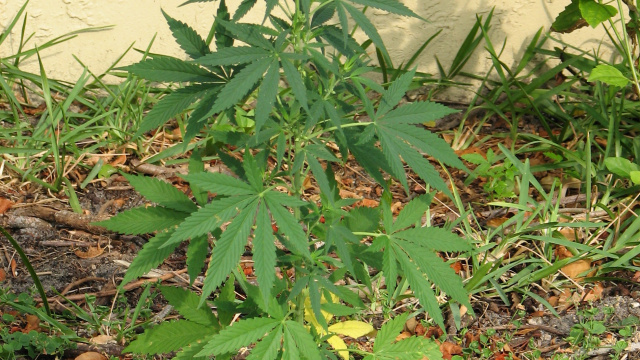 For political science pundits, it’s a new high. The latest public survey shows more than two in every five Lethbridge-area people agree with recreational use of marijuana. And even more – close to 79 per cent – say it should be readily available as a medical treatment.
For political science pundits, it’s a new high. The latest public survey shows more than two in every five Lethbridge-area people agree with recreational use of marijuana. And even more – close to 79 per cent – say it should be readily available as a medical treatment.
The growing support for decriminalizing the use of marijuana, from 42 per cent of local residents who responded, is reported by the Citizen Society Research Lab at Lethbridge College. Approval was even higher ( 42.7 per cent ) in Coaldale, also included in the college’s twice-yearly public opinion surveys.
Nearly 45 per cent of Albertans responding to the college’s province-wide poll last fall were also in favour – and the strongest support, 48.2 per cent, came from across southern Alberta.
“It’s the ( baby ) boomers and the parents of kids who might get ‘busted’ with a small amount of pot,” says Faron Ellis, political scientist at Lethbridge College.
They’re hoping to see Canadian law changed, as voters were in Colorado and Washington state. Realistically, Albertans know the Stephen Harper government stands opposed.
But it’s the provincial government that appoints the judges, he adds, and they’re not harsh with first-time offenders.
The new telephone survey – taken Feb. 9 and 10, with 835 randomly selected adults in Lethbridge and Coaldale – showed Wildrose party supporters more likely ( more than 39 per cent ) than Conservatives ( 33.6 ) to support decriminalization. New Democrats were most strongly supportive at 65.5 per cent.
Wildrose partisans were also more permissive than Tories on other issues, Ellis found. Citizens who said they vote Wildrose also voiced stronger support for medical use of marijuana, for doctor-assisted suicide and for a woman’s right to choose an abortion.
They’re reflecting a libertarian view that’s also surfaced among Harper’s MPs, he points out.
“They’re saying we should have less government interference in our economic lives, but also in our personal lives.”
Ellis says approval for the prescribed use of marijuana to counteract pain and other medical symptoms has been strong, ever since the college began its twice-a-year opinion surveys. It’s remained in the 70-80 per cent range over the last decade, peaking at 80.1 per cent in 2012.
Support continues to grow on another issue, a woman’s right to choose. Despite in-your-face campaigns by some religious groups, Ellis reports pro-choice responses have passed 80 per cent for the first time.
“It appears their behaviour has failed to stop the trend to more and more support” for choice, he says.
Perhaps surprisingly, the latest poll found 87.4 per cent of Lethbridge and Coaldale residents who attend church as least “several times a year” support women’s choice.
That figure grows to 94 per cent of those who said they attend “seldom or never,” a group that includes about 52 per cent of all residents polled.
A bare majority of those who claimed to attend at least twice a month were also in favour, reflecting differences between the city’s religious liberals and conservatives.
Ellis says the survey also found most southern Albertans agree on a once-contentious topic. Same-sex marriage is supported by more than 83.8 per cent of those who attend church occasionally as well as 85.2 per cent who said “seldom or never.”
Among those who say they attend very regularly ( about 30 per cent of the population ) there’s close to 40 per cent support.
When the question was asked 10 years ago – before all provinces had made the change – Ellis says about one-third of Lethbridge people polled were in favour of lesbian or gay couples marrying. But now, for the first time, that popular support has passed 70 per cent.
“Southern Albertans have accepted that as a just and legitimate aspect of Canadian society,” he says.
Public support for a still-controversial issue, doctor-assisted death, has also grown. Nearly 75 per cent of those responding to this month’s survey voiced their approval, compared with 66.4 per cent a year ago and 61.9 per cent in 2011. More than 82 per cent of those who sometimes attend church were in favour, vs. about 44 per cent who attend frequently.
In contrast, Ellis says, more than 60 per cent of those who attend frequently were in favour of the death penalty for first-degree murder – – nearly as high as the 66.6 per cent who don’t attend.
Church attendance isn’t an absolute predictor of southern Albertans’ attitudes, Ellis admits. On some issues, he says, it depends on whether people lean more heavily on Old Testament vengeance or New Testament forgiveness.
The Lethbridge College survey, conducted by supervised college students and distance education students of Athabasca University, polled citizens whose phone numbers were selected at random. Its margin of error is stated as 3.4 percentage points, plus or minus, 19 times out of 20.
Source: Lethbridge Herald (CN AB)
Copyright: 2013 The Lethbridge Herald
Contact: [email protected]
Website: http://www.lethbridgeherald.com/
Author: Dave Mabell



Leave a Reply